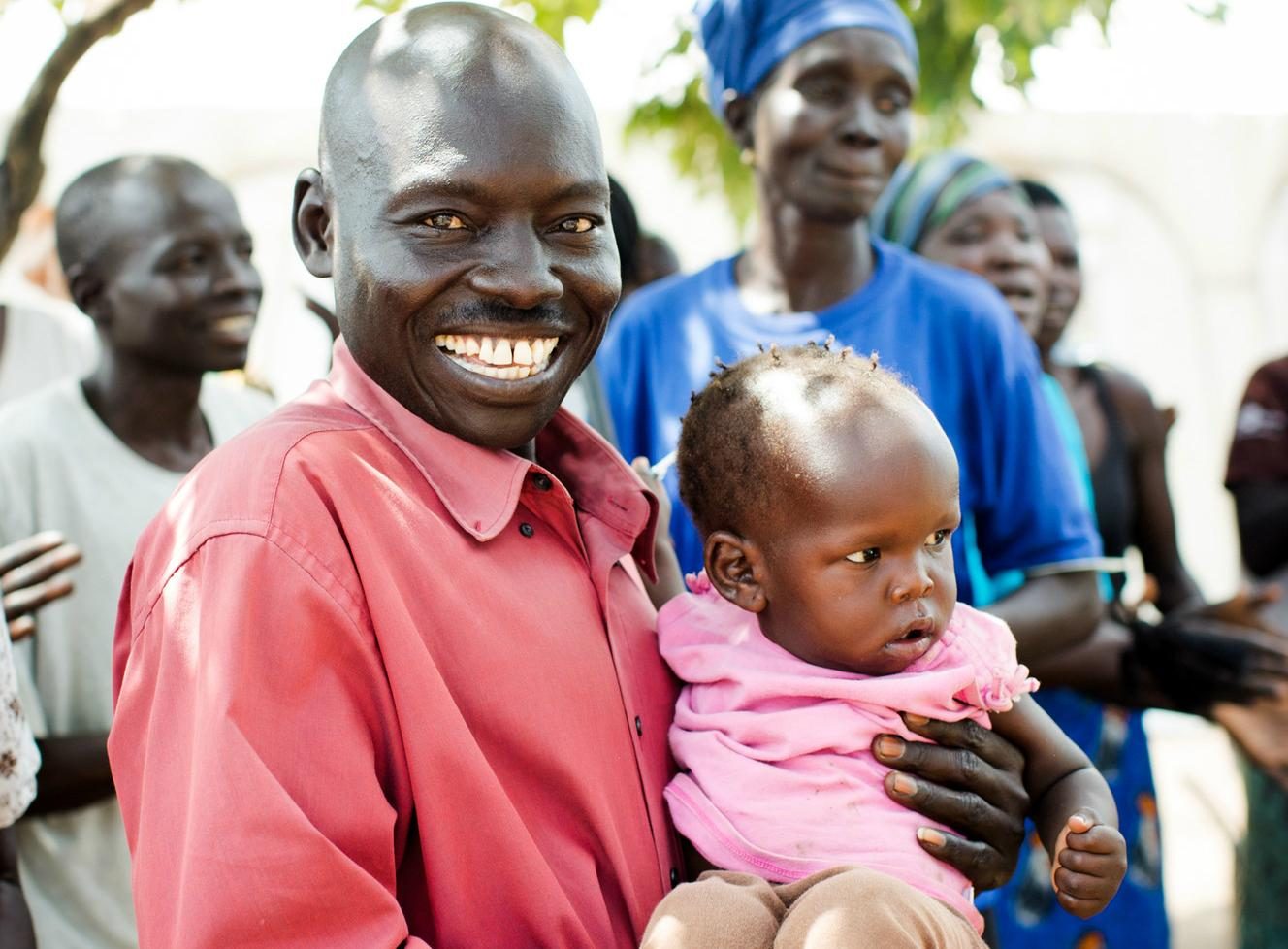Fathers develop positive family relationships in Uganda
Father of 11 John, understanding the importance of a father's role in parenting, takes an active role in his children's' upbringing and encourages other fathers to do the same.

Fathers take the lead on parenting
John is a 53-year-old husband and father of 11. He is involved in a Plan International-supported fathers’ club which encourages men to discuss their family life and supports them to become better parents and partners.
“Prior to joining the fathers’ club, I was experiencing a lot of conflict with my wife,” says John.
“I participated in training and shared the trouble I had. The facilitator advised me on what I should do to harmonise my relationship with my wife and children.
“Nowadays, I speak calmly and resolve our conflicts peacefully instead of quarrelling.”
John
“I realised I was being verbally and emotionally abusive to my children and wife. So, nowadays, I speak calmly and resolve our conflicts peacefully instead of quarrelling.
“These sessions have impacted my life and my family positively. I now live as a happy man and come home early to be with my family. I support my wife in domestic activities, and we plan and share ideas together as husband and wife.
“Whenever I meet men, I share my experience and encourage them to change and support their spouses in domestic chores, share decision making, and support the upbringing of their children,” says John.
Parenting stereotypes
Plan International’s research shows men’s involvement in childcare is often limited. This reinforces stereotypes around gendered roles within families and communities.
In Uganda, men are traditionally considered to be providers and protectors, and hold authority, control and decision-making power in the family. Childcare and domestic chores are considered to be women’s work. Gender dynamics lead to a high level of domestic abuse in the country.
However, when men play an active role in their children’s early development, it benefits their families, partners and themselves. Men’s engagement in the early years of their children’s lives is also crucial for challenging the limiting and discriminatory stereotypes that drive gender inequality.
That’s why we’re supporting fathers in Uganda to promote the wellbeing, health and development of their children and partners in both development and humanitarian settings.
Supporting children’s early development and family relationships
Our early childhood development programme in rural West Nile and Northern Uganda has supported almost 25,000 children and more than 500 teachers in 169 early childhood care and education centres.
Each centre has an associated parenting group which follows a curriculum focused on key parenting practices that support children’s healthy development, maternal wellbeing and relationships between couples.
All female and male parents or caregivers with young children are encouraged to attend the 12-session programme, delivered over 6 to 8 months. All sessions emphasise the importance of love and respect for themselves, their partners and children.
Through interactive activities including role play, games, parent-child interactions and group problem-solving, parents learn new skills and are encouraged to put these practices into action before the following session.
Categories: Early childhood development


